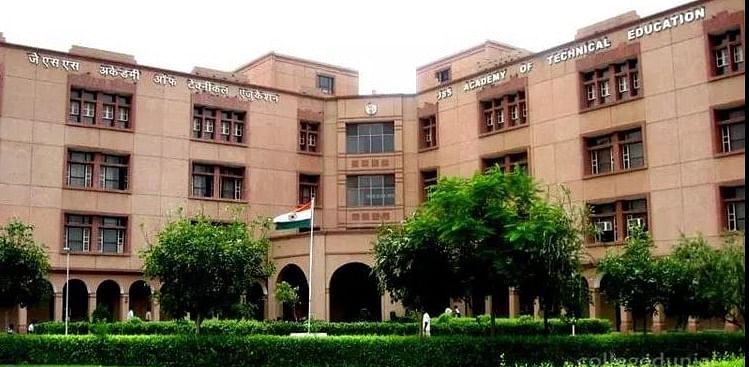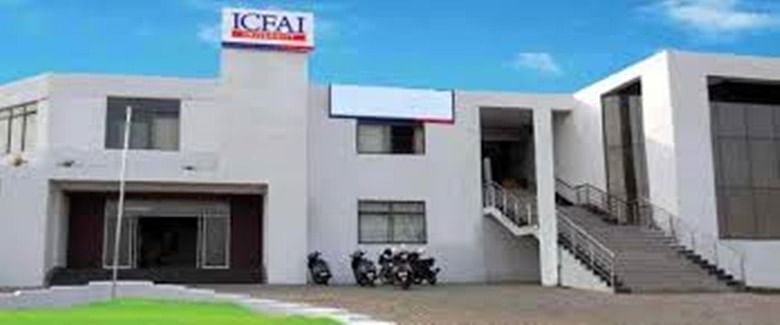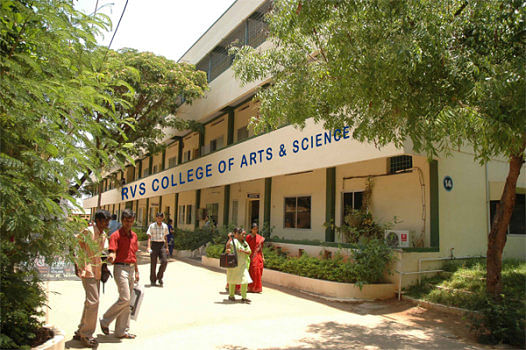MBA Accounting: Course Details, Eligibility, Admission, Fees

MBA Accounting is a two year programme that deals with a complete understanding of predominant subjects such as Accounting, Taxation, Marketing, Finance and Human Resource Management, among others. MBA accounting specialization graduates work as Accounting Educators, Chief Compliance Officers, Chief Financial Officers, Controllers, Environmental Accountants, Financial Analysts, and Financial Managers.
Table of Contents
- About MBA Accounting
- Eligibility Criteria for MBA Accounting
- Who Should Pursue an MBA Accounting Course?
- How To Get Admission for MBA Accounting?
- Types of MBA Accounting Courses
- Popular Entrance Exams for MBA Accounting
- Top MBA Accounting Colleges In India
- Study MBA Accounting Abroad
- Syllabus and Subjects for MBA Accounting
- Why Choose MBA Accounting Course?
- MBA Accounting Course Comparison
- Scope For Higher Education
- Salary of an MBA Accounting Graduate
- Career Options After MBA Accounting Graduation
- Skills That Make You The Best MBA Accounting Graduate
MBA Accounting Course Details
| Degree | Masters |
| Full Form | Master of Business Administration in Accounting |
| Duration | 2 Years |
| Age | No Age Limit |
| Subjects Required | BBA, Accounting, English |
| Average Fees | ₹3 - 4 LPA |
| Average Salary | INR 4 - 5 LPA |
| Employment Roles | Accounting Educators, Chief Compliance Officers, Chief Financial Officers, Controllers, Environmental Accountants, Financial Analysts, Financial Managers, Forensic Accountants or Fraud Investigators |
About MBA Accounting
MBA Accounting course is mainly focused on having a thorough understanding of disciplines including accounting, taxation, marketing, finance, and human resource management, among others. Graduates of the MBA Accounting programme can find employment as financial managers, environmental accountants, controllers, chief compliance officers, chief financial officers, and accounting educators.
MBA Accounting course falls under the umbrella of MBA. An MBA is intended to be a course that grooms and prepares the candidate for a difficult and demanding life. When a student wants to work in finance or taxation, he or she chooses an MBA.
Eligibility Criteria for MBA Accounting
As part of the MBA Accounting eligibility criteria, students must have a Bachelor's degree or BBA as a subject, to be eligible for the programme with a 50% total aggregate. CAT, MAT, and GMAT are some of the most sought exams for the course. There is no upper age limit. Students interested in pursuing an MBA Accounting should be aware of all eligibility requirements as well as all route information.
Who Should Pursue an MBA Accounting Course?
The course is intended for students interested in a career in business administration. Candidates can pursue careers in a variety of fields, including Accounting Educators, Chief Compliance Officers, Chief Financial Officers, and Controllers, depending on the nature and scope of the course.
When to do an MBA Accounting Course?
Typically, MBA Accounting candidates should apply for their respective courses after a Bachelor's degree or BBA as a subject, after graduation. There is no given time to pursue the course. If the aspirant feels he/she can take the exam, then he/she should apply for the course.
How To Get Admission for MBA Accounting?
MBA Accounting Admissions are available on the basis of merit or through an entrance exam. Many universities offer MBA Accounting programmes with direct/exam-based admission. Candidates applying for this course should have completed the bachelor s and entrance exams required by the colleges they have chosen.
Though the admissions process differs from university to university, the general steps to gain admission are as follows.
How to Apply?
The MBA Accounting programme is available online via the college website or in person at the admissions office. Furthermore, some faculties may conduct interviews prior to admissions to determine whether or not students have appropriate abilities regarding knowledge about the subject and its development in careers.
Selection Process
The selection process for an MBA in Accounting in India is generally the same regardless of university. In general, after receiving an application for the course, faculties make their final decision on the applicants based entirely on their overall performance in the preliminary and examination rounds.
Read More on MBA Admission
Types of MBA Accounting Courses
Aspirants can pursue the MBA Accounting course in a full-time course or a part-time course. There may be discrepancies regarding distance, so one may inquire with the university if an MBA Accounting is offered as a distance course.
Full-Time MBA Accounting
A two-year full-time MBA Accounting programme is typical. Students are required to attend classes, submit assignments, and take exams on campus during this time. Students gain more exposure, experience, and knowledge by interacting directly with colleagues and faculty when enrolled in a full-time MBA Accounting course.
Part-Time MBA Accounting
Part-time degrees allow student to complete their degree programme on their own time. MBA is also offered part-time in some colleges, though some specializations may not be offered part-time. One can check with the university what MBA courses are offered as part-time MBA courses.
Distance MBA Accounting
Distance Education colleges allow students to earn their degrees while working. This is frequently the most adaptable type of degree programme. MBA is also offered as a distance course for working professionals. One can place an inquiry within the college if they provide distance education for MBA and its specializations.
Popular Entrance Exams for MBA Accounting
Entrance exams are a common and popular way for some colleges to screen students to determine who will be admitted to the course. Many well-known colleges across the country have made a name for themselves through internationally acclaimed research projects. These colleges frequently hold entrance exams because the demand for admission is greater than the number of seats available. The most popular exam is listed below:
A Quick Glance at the MBA Accounting Entrance Exams
Students can access the course details by going to the college's official website to which they are interested in applying. The specialization plays a vital role in the college's approach to the entrance exam. Below listed are some of the general guidelines for the entrance examinations:
- The exam pattern includes English, Logical Reasoning, Analytical Thinking, and subject-specific questions according to statistics and mathematics.
- The papers are objective and MCQ-based.
- The syllabus, mode of examination, and question pattern may change according to a university/conducting body.
Top MBA Accounting Colleges In India
Indian colleges offer MBA Accounting. Candidates must make an informed decision based on the type of MBA Accounting programmes that are available. Below is the list of the 10 best MBA Accounting colleges in the country:
| Sl.No | Name of the College | Average Fees (INR) |
| 1 | ICFAI, Ranchi | 2 LPA |
| 2 | SJMSOM IIT Bombay | 1.65 LPA |
| 3 | Bharati Vidyapeeth, Pune | 6.50 LPA |
| 4 | RVS Institute of Management Studies and Research, Coimbatore | 4 LPA |
| 5 | Parul University, Vadodara | 2 LPA |
| 6 | Apoorva Institute of Management And Science, Karimnagar | 1 LPA |
| 7 | PIMR, Indore | 1.38 LPA |
| 8 | Prestige University, Indore | 1.38 LPA |
| 9 | SIBM, Rajsamand | 1.8 LPA |
| 10 | MINT, Jaipur | 2 LPA |
Top MBA Accounting Colleges in Delhi
India’s capital city is home to some of the best institutions for MBA in Accounting in India. Check the table below for the top MBA Accounting colleges in Delhi:
| Sl.No | Institution |
| 1 | DTU |
| 2 | Delhi School of Business |
| 3 | JIMS |
| 4 | Asia Pacific Institute of Management |
| 5 | EMI Business School |
Top MBA Accounting Colleges in Mumbai
Mumbai also has some of the best institutions for MBA in Accounting in India. Check the table below for the top MBA Accounting colleges in Pune:
| Sl.No | Institution |
| 1 | IIT Bombay |
| 2 | SJMSOM |
| 3 | Vivekanand Business School |
| 4 | N.L. Dalmia Institute |
| 5 | Thakur Institute of Management Studies and Research |
Top MBA Accounting Colleges in Coimbatore
Coimbatore also has some colleges offering MBA. Below is a list of some colleges offering Accounting:
| Sl.No | Institution |
| 1 | RVS Institute of Management and Research |
| 2 | Rathinam Institute of Management |
Top MBA Accounting Colleges in Bhopal
Bhopal is also a host to premier MBA Colleges. Check the table below for the best MBA Accounting colleges in Bhopal:
| Sl.No | Institution |
| 1 | RITS |
| 2 | Trinity Institute of Technology and Research |
| 3 | Akhil Bharati Management College |
| 4 | Akhil Bharati College |
Top MBA Accounting Government Colleges
There are several top Government Colleges offering quality MBA Accounting across the country. Check the table below for the top MBA Accounting government colleges in India:
| Sl.No | Institution |
| 1 | IIT Ahmedabad |
| 2 | IIT Lucknow |
| 3 | IIT Kanpur |
| 4 | IIT Kozhikode |
| 5 | Aliah University, Kolkata |
Top MBA Accounting Private Colleges
India has seen significant growth in the number of quality MBA Accounting private colleges that offer some of the best programmes in the country. Check the table below for the top private colleges in India:
| Sl.No | Institution |
| 1 | AGBS, Noida |
| 2 | Christ University, Bangalore |
| 3 | NMIMS, Mumbai |
| 4 | UPES, Dehradun |
| 5 | Xavier School Management, Jamshedpur |
Study MBA Accounting Abroad
Compared to India, the structure of the master is specific to a particular subject area. Students with sufficient financial resources can obtain an MBA in other countries. Accounting an MBA is one of the best courses for studying abroad because of its diversity.
Below are some of the best universities for MBAs around the world, along with tuition and facility information.
Top MBA Accounting Colleges Abroad
The table below contains a list of some of the best colleges abroad for MBA Accounting:
| Sl. No. | The Institutions |
| 1 | Dallas Baptist University, USA |
| 2 | IU International University of Applied Sciences, Germany |
| 3 | West Virginia University, USA |
| 4 | Stanford University, USA |
| 5 | Columbia Business School, Columbia University, USA |
| 6 | Manipal Academy of Higher Education Dubai, UAE |
| 7 | OUS Royal Academy of Economics and Technology in Switzerland |
| 8 | National American University, USA |
| 9 | Broward International University, USA |
| 10 | Sloan School of Management, MIT, USA |
Top MBA Accounting Colleges in the USA
The United States is home to some of the best universities and colleges in the world, offering a world-class MBA Accounting. The table below contains a list of the top MBA Accounting schools in the United States:
| Sl.No | Institution |
| 1 | West Virginia University |
| 2 | Stanford University |
| 3 | National American University |
| 4 | Broward International University |
| 5 | Columbia Business School |
Top MBA Accounting Colleges in the UK
The UK is host to some of the best colleges offering an MBA Accounting. The table below lists the top MBA Accounting colleges in the United Kingdom:
| Sl.No | Institution |
| 1 | Imperial College Business School |
| 2 | London Business School |
| 3 | Saïd Business School |
| 4 | Judge Business School |
Top MBA Accounting Colleges in Australia
Australia has emerged as one of the top destinations for higher education for many students. The following are the top MBA Accounting colleges in Australia:
| Sl.No | Institution |
| 1 | RMIT University |
| 2 | University of Melbourne |
| 3 | University of Sydney |
Top MBA Accounting Colleges in New Zealand
The home of the Kiwi birds, New Zealand, a tranquil country at the southern tip of Australia is home to some of the best colleges offering MBA Accounting. Below is a list of the top five colleges:
| Sl.No | Institution |
| 1 | Auckland University of Technology |
| 2 | Massey University |
| 3 | University of Canterbury |
| 4 | University of Auckland |
Fee Structure for MBA Accounting
The MBA Accounting course fee is not fixed and depends on many factors. Some of the factors which affect the MBA Accounting fees include location, faculty, demand, infrastructure, and the facilities available to the students. The average MBA Accounting course fee in India is around INR 5,000 - 2 LPA.
| Sl.No. | Name of the College | Total Fee Structure (INR) |
| 1. | Presidency College, Bangalore | 2 LPA |
| 2. | IIT, Mumbai | 24 LPA |
| 3. | BML Munjal University, Gurugram | 5.79 LPA |
| 4. | GD Goenka University, Gurugram | 3.73 LPA |
| 5. | Delhi Technical University, Delhi | 1.66 LPA |
Syllabus and Subjects for MBA Accounting
The following are the course syllabi for some of the most popular MBA Accounting courses. Most colleges across the country adhere to the core of the syllabus, with minor variations observed at a few colleges. The following are some of the subjects that students can study:
- Auditing and Professional Responsibilities
- Advanced Accounting
- Commercial Law
- Financial Accounting
- Organizational Behavior and Leadership
- Innovation Management in Products and Services
Read More: MBA Accounting Syllabus and Subjects
Why Choose MBA Accounting Course?
Students who decide to pursue the MBA Accounting qualification should conduct research on the MBA in Accounting course details to ensure that they understand the course in which they are enrolled. Students frequently ask, "What is an MBA Accounting?" and "Why MBA Accounting?" We can make the answers to these questions easier to understand by breaking them down into the following short questions:
What is MBA Accounting All About?
The MBA Accounting Course focuses on developing the necessary leadership and/or management skills to lead the food chain. It is in areas such as interim accounting, financial analysis, personal and corporate taxes, and leadership and organizational behaviour.
What Does an MBA Accounting Graduate Do?
Students can select courses based on their interest in the available job opportunities in their field. MBA Accounting graduates have a wide range of skills and can work in a variety of settings. Additionally, graduates in this position must assume a wide range of responsibilities, making the positions highly dynamic and diverse.
Forensic Accountant: Forensic accountants examine, interpret, and summarize complicated financial and business issues. They could work for insurance companies, banks, police departments, government agencies, or public accounting firms.
Reasons Why MBA Accounting Can Fetch You a Rewarding Career?
MBA Accounting is an enthralling and stimulating field of study. Students can recognise the courses' intrinsic value because they provide the greatest number of job opportunities across all disciplines. As a result, the scope of work for an MBA Accounting is constantly expanding and appealing.
Diversity in Job roles: Graduates of this course will be able to choose from a wide range of job opportunities. Because the course available to students is so diverse, they can pursue a wide range of roles in their careers.
Read More: MBA Accounting Jobs and Scope
MBA Accounting Course Comparison
MBA Accounting is typically catered to students interested in and inclined toward mathematics and statics. Below is a comparison of the MBA Accounting course with other courses:
MBA Accounting vs MBA Finance
The table below showcases the differences between MBA Accounting and MBA Finance:
| Course | MBA Accounting | MBA Finance |
| Full-Form | Master of Business Administration in Accounting | Master of Business Administration of Finance |
| Stream | Business | Business |
| Course Duration | 2 Years | 2 years |
| Eligibility | A bachelor's degree in any discipline with a minimum of 50% marks or an equivalent CGPA | A bachelor's degree in any discipline with a minimum of 50% marks or an equivalent CGPA |
| Entrance Exams | CAT, MAT, XAT | CAT, SNAP, XAT |
| Top Colleges | IIM Delhi, IIM Bangalore, IIM Calcutta, | IIM Ahmedabad, Amity University, LPU, Christ University |
| Fees | INR 4- 10 LPA | INR 7- 20 LPA |
Read More: MBA Finance
MBA Accounting vs Master of Accounting
The table below showcases the differences between the MBA Accounting and Master of Accounting:
| Course | MBA Accounting | Master of Accounting |
| Full-Form | Master of Business Administration in Accounting | Master of Accounting |
| Stream | Business | Business |
| Course Duration | 2 Years | 2 years |
| Eligibility | A bachelor's degree in any discipline with a minimum of 50% marks or an equivalent CGPA | A bachelor's degree in any discipline with a minimum of 50% marks or an equivalent CGPA |
| Entrance Exams | CAT, MAT, XAT | GMAT, GRE |
| Top Colleges | IIM Delhi, IIM Bangalore, IIM Calcutta | Birla Institute of Management Technology, ISME, Christ University |
| Fees | INR 4- 10 LPA | INR 8,000- 2.5 LPA |
Scope For Higher Education
After completing an MBA Accounting, students can pursue a higher degree to attain more knowledge and develop their career prospects. The master's course can act as a booster for development during the pursuit of higher education in their prospective field. Below are a few courses to pursue after an MBA Accounting:
Salary of an MBA Accounting Graduate
Salaries for graduates will vary depending on the discipline chosen by the applicant. Experience, geography, and the industry in which they work can all have an impact on MBA Accounting salaries in India. Internships help graduates earn more money by expanding their experience. The average salary for an MBA Accounting job for graduates is around INR 4 to 20 LPA. [PayScale]
Read More: MBA Accounting Salary
Career Options After MBA Accounting Graduation
There are numerous job opportunities for students interested in a career in the corporate and finance industry. MBA Accounting jobs will be determined by the area of expertise you choose when earning your degree. MBA Accounting graduates will find a plethora of job opportunities with competitive pay packages in the following fields:
- Indian Economic Services
- Business Complexes
- Commercial Hubs
- Educational Institutes
- International Conglomerate
Skills That Make You The Best MBA Accounting Graduate
MBA Accounting graduates must have a diverse set of complex and interpersonal skills in order to advance in their careers. These skills may not always be taught to students in school. These are skills that can only be acquired through practice. As a result, students should always strive to go beyond their comfort zone and gain as much experience as possible. The following are examples of these abilities:
- Mathematical Ability
- Qualitative Analysis Ability
- Interpersonal Communication
- Quantitative Data Interpretation
- Tactical Ability





















